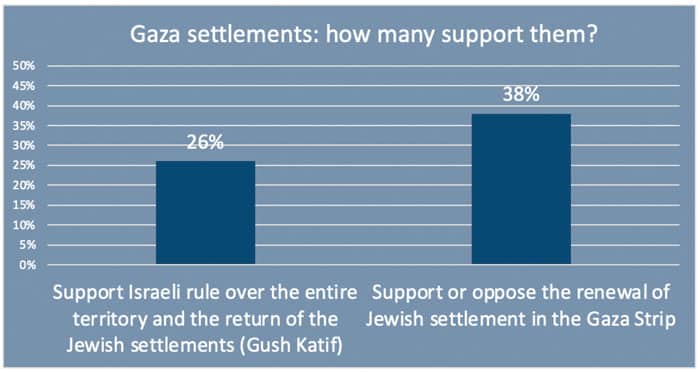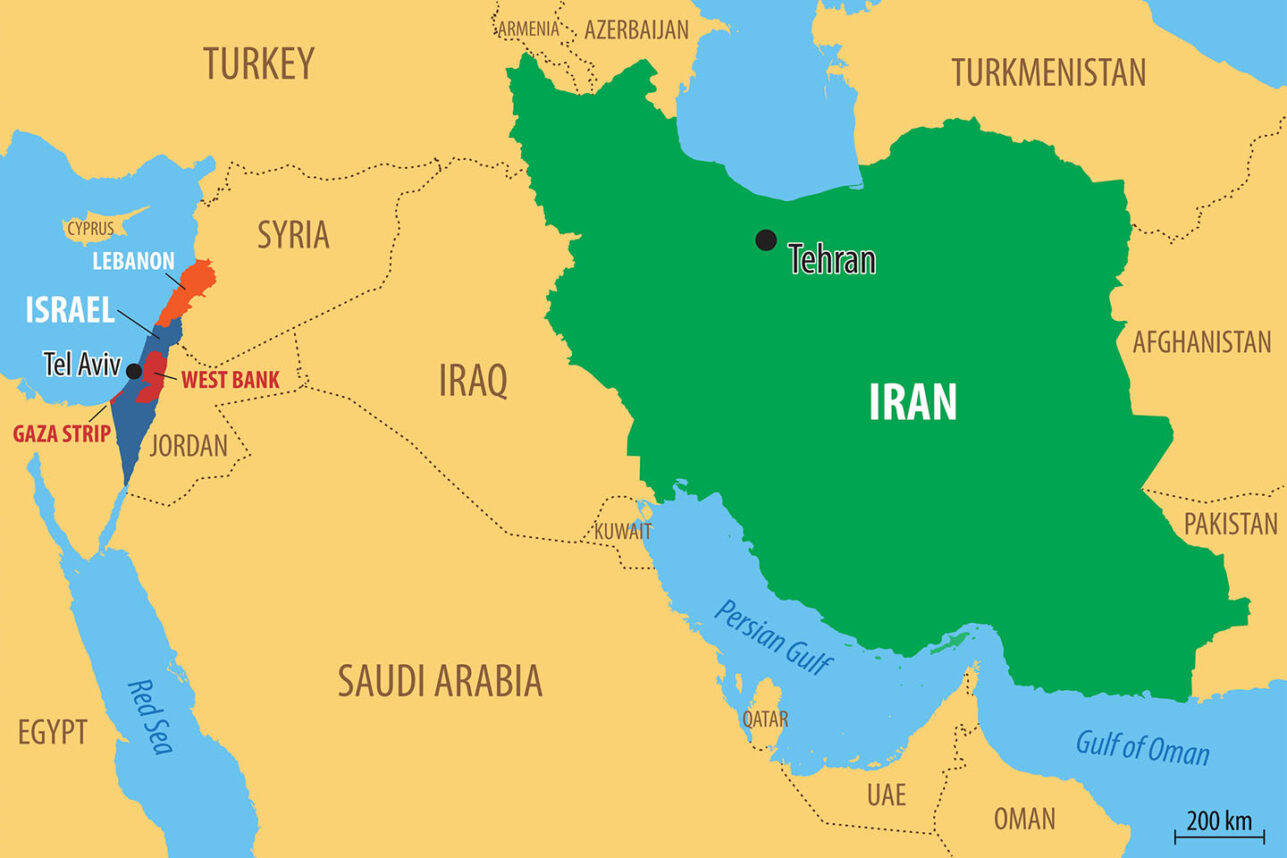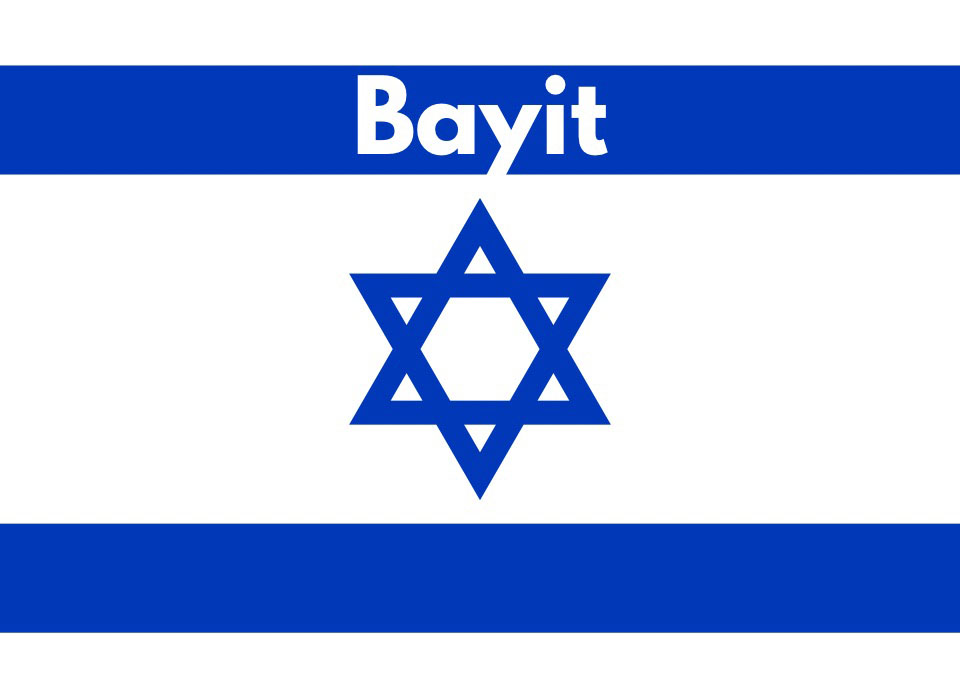
The White House issued an executive order targeting Israeli settlers who have – allegedly – attacked Palestinians in the West Bank.
Israeli banks responded the way banks respond to such developments. At least one of the four Israeli settlers blacklisted by the U.S. claimed on Sunday that his bank account has been frozen.
Members of the Israeli right responded the way right-wingers respond to such developments: Crying foul and flexing their muscles, as if in defiance of foreign intervention.
Members of the Israeli left responded the way left-wingers respond to such developments: Telling everybody “we told you so.”
It is a statement by the U.S. that no matter what Israel is saying, the administration is under the impression that settler violence against Palestinians in the West Bank is rising.
This executive action impacts just a few Israelis but is worthy of attention for several reasons: It is a statement by the U.S. that no matter what Israel is saying, the administration is under the impression that settler violence against Palestinians in the West Bank is rising. That’s a factual question for which the U.S. decided it has an answer, but that many Israelis are still not sure about. More than one Israeli reporter concluded that the reports concerning settler violence are greatly exaggerated, and that many Israelis suspect are manipulation by activists whose goal is to smear Israel and complicate its diplomatic situation. I wish I could tell you which of the two versions is closer to the truth, but I can’t. I am far from being confident that settler claims, journalistic claims, official Israeli claims, activists’ claims and the administrations’ conclusions can be trusted. Most of these seem to be either ideologically motivated or rest on less than solid ground.
So the U.S. decided to make its move even though the facts are not as clear as we’d like them to be. What does this mean? It means a lot – it means that the U.S. administration does not trust Israel to investigate, report, persecute and prevent settler violence against Palestinians. Now – that’s a dramatic statement. Israel is a country of laws, and its judiciary is known to be independent and effective. On the other hand, Israel’s police is currently supervised by a politician that no American official would meet with, and Israel’s coalition is controlled by parties whose tolerance of settler illegal activity is well documented.
The Biden administration, by issuing its executive order, basically told Israel: The era of trust yet verify is over. We are now in the era of mistrust. The dynamic is reversed: The administration will no longer chase after evidence until there’s certainty of wrongdoing. The administration will issue an order, and Israel is invited to chase U.S. officials if they have proof that no wrongdoing had taken place.
All this is happening when the U.S. and Israel seem to be having trouble agreeing on certain things. The U.S. – to its credit, still states that Hamas must be eliminated as a ruler of Gaza. Less to its credit is the fact that actions speak lauder than words, and the U.S. seems to lose its patience with the actions without which Hamas elimination is merely rhetoric. True, it is always a delicate balance to strike, between having patience and getting bogged down in unwinnable wars. True, like many Israelis, the administration has reasons to suspect that the Israeli government isn’t the most competent one can get. And yet, the linking of settler policy to war policy, as the Biden administration does, is less than elegant.
That Israelis on the right are angry is no surprise. It’s their objectives and their friends the administration is after. That they argue against U.S. action as if it is immoral or too invasive is ridiculous. For years Israel pleaded with consecutive administrations to enact exactly those actions against people and countries Israel deemed problematic. Obviously, when Israel becomes the target of such action it becomes uncomfortable. But that’s the way the U.S. operates in the world, and if anyone thought that Israel would be spared sanction no matter what it does – they were as naive as, well, as an American.
The glee from Israelis on the left is also far from being a surprise. Settler activity, and especially the indifferent bravado of settler loners nicknamed hilltop youth, had become an annoyance, and is seen as a manifestation of the extremity of Israel’s current government. That they praise U.S. action, of feel it is justified, even though the evidence on which it is based seems slim, is testimony to their level of frustration. An Israeli should not be pleased when the administration is changing its policy in a way that makes Israel look like a pariah state. Today it’s settlers, tomorrow, who knows. Precedents such as this are tricky. And one doesn’t have to be a settler-promoter to get nervous when the U.S. government decided to target Israelis without presenting any proof of their guilt of an offense.
Something I wrote in Hebrew
How do Israelis think about the “warmth” of the opposing political camp?
What is a warm person? It is not certain that there is a clear answer here that will help us understand what it is, but there is certainly an answer that corresponds with images and political positions. The members of the camp that is more religious, Sephardic, suspicious of foreigners, have large families — the camp that has more people who live in the periphery, and that has on average less education and income – these are the ones who have the image of “warmer” Israelis. Now we will return to another question: Is “warmth” a positive quality? If you look back at what I have written so far, this question can be answered at least two ways.
A week’s numbers
The way a question is framed can have great impact on answers. The second question (Ch.12 survey) is more precise, and hence it is probably a third of Israelis who support Gaza settlements, and not a quarter.

A reader’s response:
Micah Satler asks: “Do you think Netanyahu refuses to bring the hostages back because of political considerations?” My answer: Netanyahu did not yet see a deal to which he can respond by a yes or a no. So – no.
Shmuel Rosner is senior political editor. For more analysis of Israeli and international politics, visit Rosner’s Domain at jewishjournal.com/rosnersdomain.


































 More news and opinions than at a Shabbat dinner, right in your inbox.
More news and opinions than at a Shabbat dinner, right in your inbox.